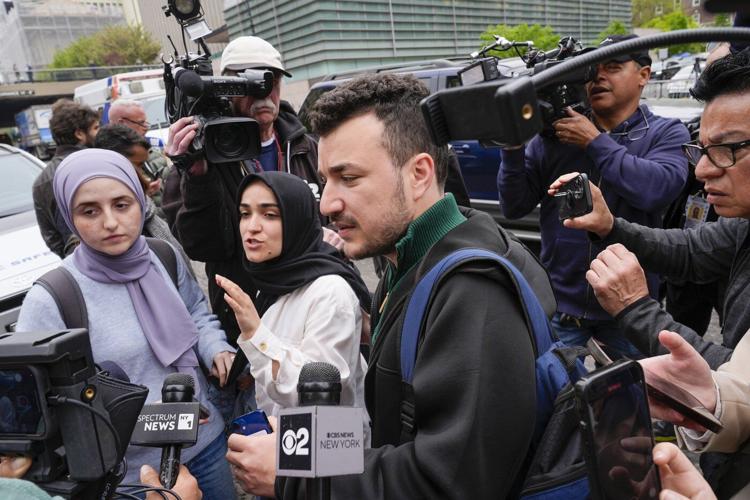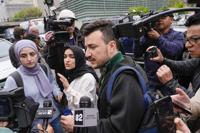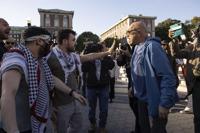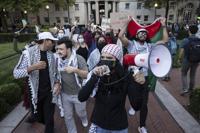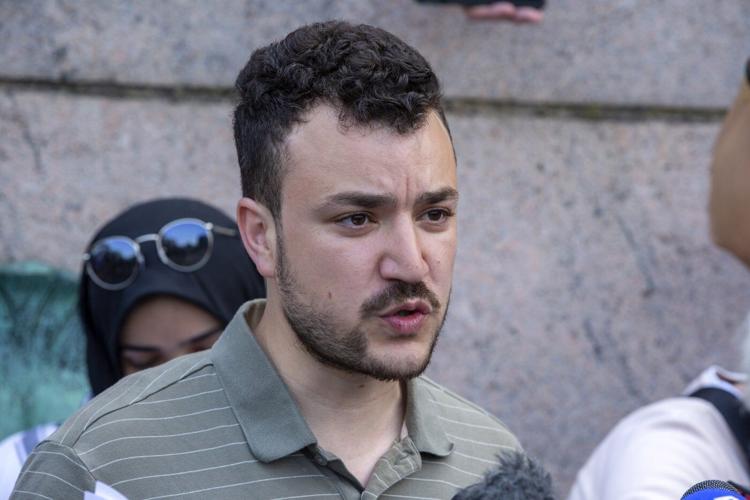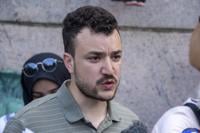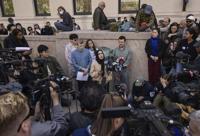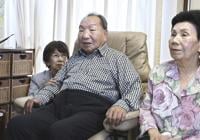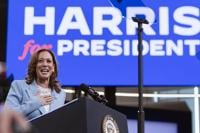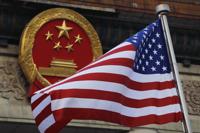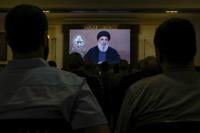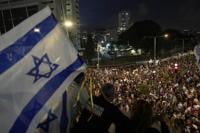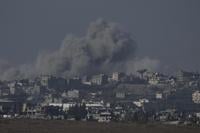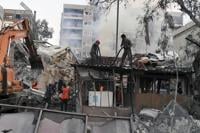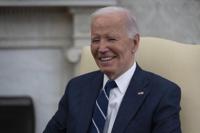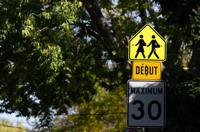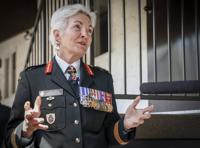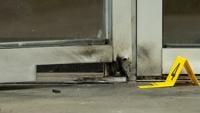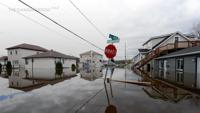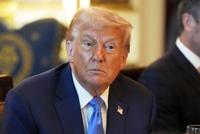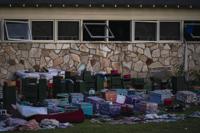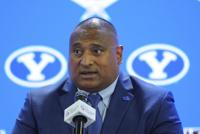NEW YORK (AP) — When protests over the Israel-Hamas war took root on Columbia University's campus last spring, Mahmoud Khalil became a familiar, outspoken figure in a student movement that soon spread to other U.S. colleges.
The international-affairs graduate student was a fixture in and around the on Columbia's Manhattan campus, for demonstrators who deplored Israel's military campaign in Gaza and pressed the Ivy League school to cut financial ties with Israel and companies that supported the war.
“We want to be visible,” last April.
Now that visibility has helped make him the face of President Donald Trump's drive to punish what he calls antisemitic and “anti-American” campus protests. In the first publicly known arrest of the crackdown, federal immigration agents took Khalil, a legal U.S. resident married to an American citizen, from his apartment Saturday and held him for potential deportation.
To Trump and his administration, Khalil's arrest is an opening move in a campaign to rid the country of foreign students accused of helping to make American campuses intimidating territory for Jewish students. To civil rights advocates and Khalil's lawyers, his detention is an assault on free speech and an attempt to suppress pro-Palestinian views.
And to some who have worked alongside the 30-year-old graduate student at the protests and elsewhere, his arrest is a startling takedown of someone with diplomatic experience that he brought to bear in the charged days of the demonstrations.
“You couldn’t meet a kinder or nicer person to work with. He’s thoughtful. He’s intelligent. He’s conscientious,” said former British diplomat Andrew Waller, a colleague of Khalil's from the U.K.’s Beirut-based embassy for Syria.
Khalil worked there from about 2018 to 2022, running a scholarship fund and supporting the U.K.’s diplomatic engagement with Syria, Waller said, noting that the role required an extensive background check.
He said the two spoke a few weeks ago, and Khalil was focused on becoming a father — his wife is pregnant — and on strife in Syria, where he was born and raised in a Palestinian family. Khalil also expressed concern that he might be targeted by the new Trump administration, Waller said.
Flight from civil war to the halls of academia
After finishing high school in Syria, Khalil was on track to study aviation engineering there, but his plans were upended by the country's civil war, he wrote in a 2017 essay for an international education charity. He recounted that he left for Beirut, got a job with an education nonprofit that helps Syrian children, and went to a Lebanese university.
“Where would I be if, like countless other Syrian refugees before me, I could not get a scholarship, could not work, or worst of all, could not leave Syria in the depths of the ongoing war?” he wondered in the essay.
Khalil earned a bachelor's degree in computer science and decided to continue his studies at Columbia, according to an online bio for a 2020 international development conference where he was listed as a speaker.
Then, last spring, protests over the war in Gaza erupted at Columbia, where demonstrators set up tents in the middle of campus and took over an administration building. A spread to some other colleges around the country.
Khalil served as a prominent student mediator on behalf of pro-Palestinian activists and Muslim students concerned for their safety.
But images of his maskless face at protests, along with his willingness to share his name with reporters, quickly made him a target among those who saw antisemitism in the demonstrations.
“I’m an easy scapegoat for them to say, ‘Look at this Palestinian who never wore a mask and was active in the school protests,’” Khalil told an Associated Press reporter in an interview last week.
The Columbia Jewish Alumni Association, meanwhile, has called Khalil a “ringleader of the chaos” on campus. A new Columbia disciplinary committee , most recently whether he violated a university anti-harassment policy by calling a dean “genocidal.”
Targeted by the Trump administration
Khalil is now being held in a federal detention complex in Louisiana.
White House press secretary Karoline Leavitt said Tuesday that Khalil should be deported because he organized “protests that not only disrupted college campus classes and harassed Jewish American students and made them feel unsafe on their own college campus, but also distributed pro-Hamas propaganda.” The U.S. government has designated Hamas, the militant group that controls Gaza, as a terrorist organization.
Those who protested alongside Khalil dispute that account.
“If someone distributed something at a protest that has nothing to do with the group, they attribute it to him for having his face at the action,” said Maryan Alwan, a Columbia University senior.
She described Khalil as mild-mannered and gifted at navigating internal disputes among student protesters. Outside of activism, she said he enjoyed cooking and playing drums in Columbia’s Arab Music Ensemble.
Columbia protest leaders have insisted they’re anti-war, not antisemitic, and the demonstrations include some Jewish students and groups.
Still, a Columbia task force on antisemitism found “serious and pervasive” problems with the climate on campus. The group said in a report that during the demonstrations, Jews and Israelis had been verbally abused, humiliated in classes and ostracized from student groups.
Khalil finished his master's degree studies in December and has been scheduled to receive his degree in May, his lawyers said in a court filing.
Meanwhile, he and his wife are expecting their first child. She is eight months pregnant, according to his attorneys. While not giving her name, they released a statement in which she implored the public “to see Mahmoud through my eyes as a loving husband” and father-to-be.
“I need your help to bring Mahmoud home, so he is here beside me, holding my hand in the delivery room,” she wrote.

